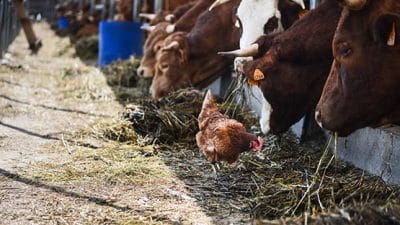
While farmers and gardeners often look to springtime for prime growing conditions, working in the winter can yield success.
By identifying crops that can withstand a hard frost, growers ready to kick-start their gardens in February will find ideal conditions to grow leafy greens, brassicas and other fast-maturing vegetables.
“The wintertime really gives you an opportunity to do some things that are different that you don’t normally do in the main growing season,” said Chris Mullins, a Virginia Cooperative Extension horticulturist.
“Snow peas, English peas and certain lettuce varieties are going to do better than other times, and certain herbs are going to do better when it’s cold out,” Mullins said. “When you think about cole crops like collards, kale, cabbage and kohlrabi, they’re going to do really well in cold temperatures.”
Other vegetables to consider planting during winter months include carrots, parsnips and broccoli. Crops adverse to frost, such as tomatoes, watermelons and peppers, should be avoided. Proper plant selection and protection is an important component of a successful garden, Mullins added.
With frost damage posing one of the biggest threats to winter vegetables, growers should cover crops during freezing temperatures with row covers, tarps or blankets. Growers also can use cold frames such as high tunnels and hoop houses to keep their crops protected from detrimental winter elements.
“High tunnels trap heat and block cold winds, allowing gardeners across Virginia to harvest hardy winter vegetables like spinach, kale and carrots all winter long,” said Alex Hessler, director of Homefield Farm at Virginia Tech. “By keeping the plants and soil dry, high tunnels dramatically reduce disease and weed pressure.”
Growers also should familiarize themselves with planting zones designated by the U.S. Department of Agriculture. With seven distinct zones in Virginia, growers in Tidewater will have different experiences from those growing at higher altitudes in western portions of the state. Getting familiar with these planting zones can aid in winter planting success.
“There are definitely differences as you look across the state, and I think growers need to know that,” Mullins said. “They should learn what hardiness zone they’re in, what the weather typically does in their area with historical highs and lows, and plan accordingly.”










